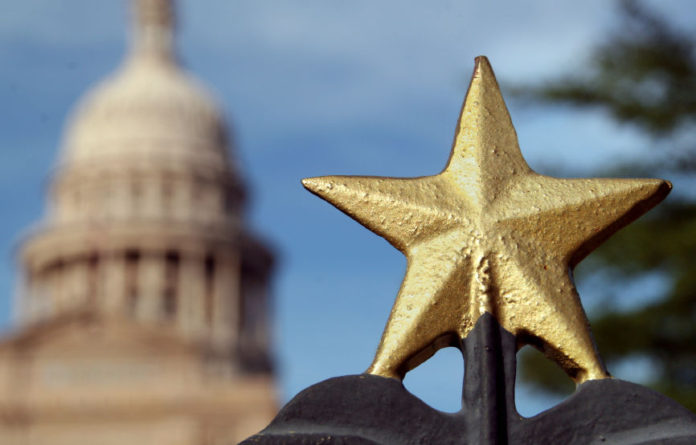May 2, 2019
After revisions made in the Texas House, more than a thousand smaller taxing units may not have to abide by a key provision in the Legislature’s priority property tax reform bill that requires them to hold an election before raising 3.5% more property tax revenue than the previous year.
Republican leaders have billed the measure, Senate Bill 2, as a critical check on spiraling property tax bills and a wholesale reform of the tax system. Approved by the House earlier this week, the legislation requires cities, counties and emergency service districts to receive voter approval before raising 3.5% more property tax revenue than the previous year — a figure municipal leaders and Democrats have cast as punitively low.
But hundreds of local government units may be able to surpass that threshold, thanks to a change that lets them raise $500,000 in property tax revenue without having to hold an election. The provision was introduced in the House’s version of the bill but has not been approved by the Senate. The legislation is expected to head to a conference committee, where behind-the-scenes negotiations between the two chambers could change — or even remove — the provision.
Under the change, about 1,100 cities and counties would have been able to increase their property tax levies by more than 3.5% in a year, based on a Texas Tribune analysis using 2017 data from the state comptroller. Most of those municipalities, in fact, would have been able to grow their revenue by at least 8%, more than currently allowed in state law.
That would leave fewer than 300 cities and counties — the ones that levy the most property tax revenue — operating under the 3.5% election trigger. (The Tribune did not analyze the growth rates of special taxing units, which include emergency service and municipal utility districts.) There are thousands of taxing units in the state.
The rationale for the allowance is that it lets districts with small tax bases make one-time big-ticket purchases without automatically needing to hold an election. State Rep. Dustin Burrows, the chair of the Ways and Means Committee, has also said it is illogical to require an election if the cost of administering it outweighs the revenue it could raise.
“The cost of the election is such that it really doesn’t make sense,” Burrows, a Lubbock Republican who is carrying the property tax legislation in the lower chamber, said at an April hearing. The provision was added to the House’s version of SB 2 after hearing witness testimony, he said.
Additionally, members supportive of the provision argue that the bill’s transparency components would ensure that local citizens know what’s happening.
When the Senate passed SB 2 in April, the bill included a different cushion for small taxing units, which the upper chamber defined as districts that raise less than $15 million in combined sales and property tax revenue. Instead of having a $500,000 allowance, the Senate required voters in small taxing units to opt in to having the 3.5% election trigger.
State Rep. Trey Martinez Fischer, a San Antonio Democrat, said during a debate Tuesday that Burrows had simply replaced “a carveout with a carveout.”
The new provision “just says you can either raise your taxes by 3.5% or you can take up to half a million dollars to go buy a fire truck,” said Martinez Fischer, who serves on the tax-writing Ways and Means committee. “Well, for some counties, when they take half a million dollars to buy a fire truck, they’re going to up their tax rate to 63%, which is much higher than current law and much higher than the 3.5% effective rate that is being asked of the rest of us.”
An amendment Martinez Fischer proposed to strike the provision failed Tuesday, when SB 2 was approved by the lower chamber.
The provision doesn’t necessarily divide House members along partisan lines. Lawmakers who represent rural parts of the state can argue it allows smaller taxing units in their districts to have more breathing room. Those in urban areas, and some of the chamber’s more fiscally conservative members, can argue it’s more fair for every taxing unit in the state to be subject to a uniform trigger.
During the debate Tuesday, Martinez Fischer handed members a list of counties that would be exempt from the 3.5% election trigger, should the proposal stick.
“We know Senate Bill 2 does not lower property taxes,” read a sentence at the top of the page, “but does it raise taxes in these Texas counties?”
Currently, cities, counties and other taxing units can raise 8% more property tax revenue before their voters can petition for an election to roll back the increase. Champions of the property tax reform measures have said the 8% rate was set during a period of high-inflation during the 1970s and never revisited.
State Sen. Paul Bettencourt, who authored the Senate’s version of the legislation, said the chambers share similar ideas about many of the bills’ provisions. He called the $500,000 exemption a “major change” but that “all of these points are what conference committees work out.”
Similarly, Burrows said: “I am sure this issue will be part of the conference committee and look forward to working through it with our counterparts in the Senate.”
As currently drafted, the $500,000 figure will be indexed to inflation, meaning the amount would likely grow over time.






